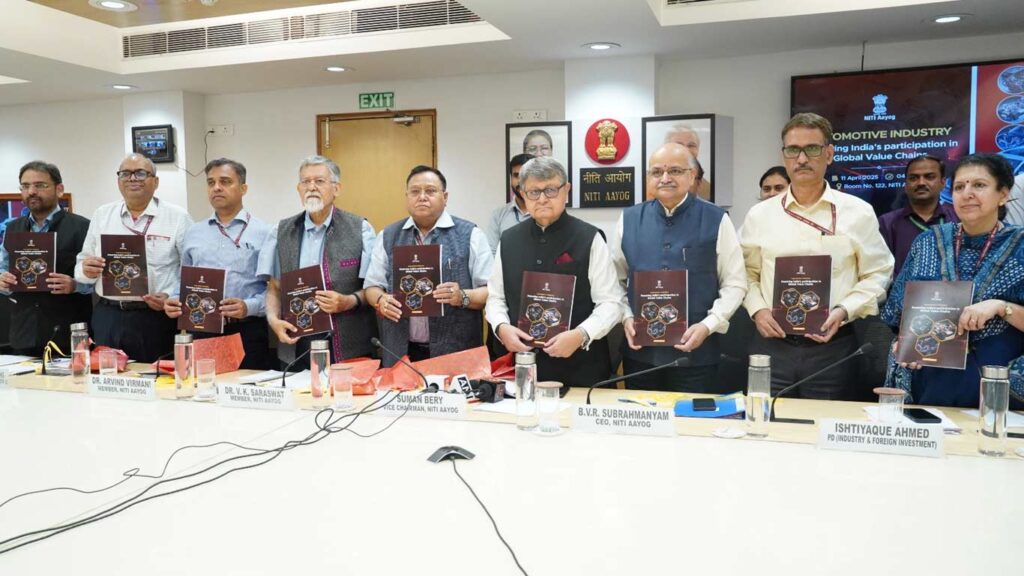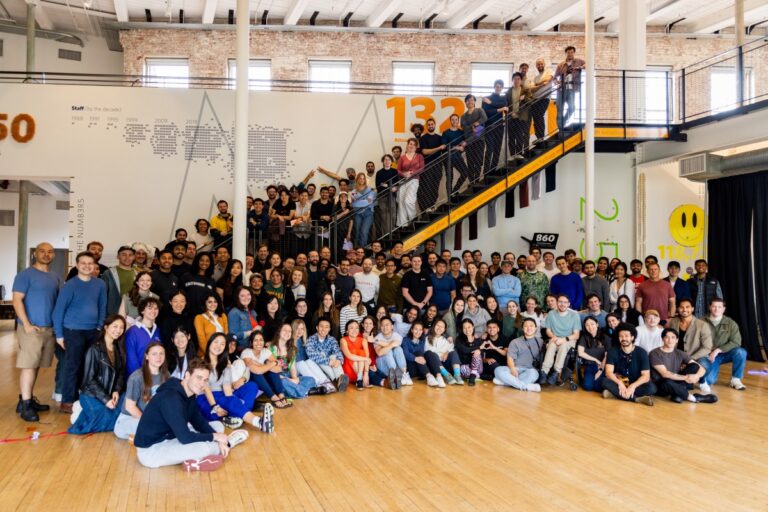New Delhi, April 12 (KNN) NITI Aayog has unveiled a comprehensive report titled “Automotive Industry: Powering India’s Participation in Global Value Chains.”
The report provides an extensive analysis of India’s automotive sector, examining both opportunities and challenges while charting a strategic pathway for India to establish itself as a significant player in global automotive markets.
The global automotive landscape produced approximately 94 million vehicles in 2023, with the global components market valued at USD 2 trillion, including exports worth USD 700 billion.
India has established itself as the fourth-largest global automobile producer following China, the United States, and Japan, manufacturing nearly 6 million vehicles annually.
The Indian automotive sector has developed a strong presence in both domestic and export markets, particularly excelling in small cars and utility vehicles.
Government initiatives such as ‘Make in India’ coupled with India’s cost-competitive workforce have positioned the country as an emerging hub for automotive manufacturing and exports.
The automotive industry is experiencing a transformative shift toward electric vehicles, driven by increasing consumer demand for sustainable mobility, regulatory pressures to reduce carbon emissions, and advancements in battery technology.
Global EV sales have increased significantly, reshaping manufacturing landscapes worldwide.
Battery manufacturing centers are developing in regions including Europe and the United States, stimulating investments in lithium and cobalt mining industries essential for EV production.
These developments are reconfiguring traditional supply chains and creating new avenues for collaboration and competition.
Simultaneously, Industry 4.0 is revolutionising automotive manufacturing processes. Technologies including Artificial Intelligence, Machine Learning, Internet of Things, and robotics are enhancing production efficiency, improving productivity, reducing costs, and enabling greater manufacturing flexibility.
These digital advancements are not only optimising production processes but also fostering innovative business models centered around smart factories and connected vehicles.
Despite being the world’s fourth-largest automobile producer, India holds only a modest 3 percent share in global automotive component trade, amounting to approximately USD 20 billion.
The majority of global trade in automotive components involves engine components, drive transmission, and steering systems, but India’s presence in these high-precision segments remains limited at just 2-4 percent.
The Indian automotive sector faces challenges related to operational costs, infrastructure gaps, moderate global value chain integration, and insufficient R&D expenditure, factors that hinder its global competitiveness.
NITI Aayog’s report outlines strategic fiscal and non-fiscal interventions designed to enhance India’s global competitiveness in the automotive sector.
These interventions are categorised across four component types based on complexity and manufacturing maturity: Emerging & Complex, Conventional & Complex, Conventional & Simple, and Emerging & Simple.
Fiscal interventions include operational expenditure support to scale manufacturing capabilities, skill development initiatives to build talent pipelines, incentives for R&D and international branding, government-facilitated intellectual property transfers, and cluster development to foster collaboration between firms through shared facilities such as R&D and testing centers.
Non-fiscal interventions focus on encouraging Industry 4.0 adoption to improve efficiency, promoting international collaboration through joint ventures and free trade agreements to expand global market access, and enhancing ease of doing business by simplifying regulatory processes, increasing worker hour flexibility, improving supplier discovery and development, and creating more favorable business conditions for automotive companies.
NITI Aayog’s vision for India’s automotive sector by 2030 is ambitious yet achievable.
The report projects the country’s automotive component production to grow to USD 145 billion, with exports tripling from USD 20 billion to USD 60 billion.
This growth would generate a trade surplus of approximately USD 25 billion and significantly increase India’s share in the global automotive value chain from 3 percent to 8 percent.
Additionally, this expansion is expected to create 2-2.5 million new employment opportunities, bringing total direct employment in the sector to 3-4 million.
The report can be accessed at this link: https://www.niti.gov.in/sites/default/files/2025-04/Automotive-Industry-Powering-India-participation-in-GVC_Non-Confidential.pdf
(KNN Bureau)


















